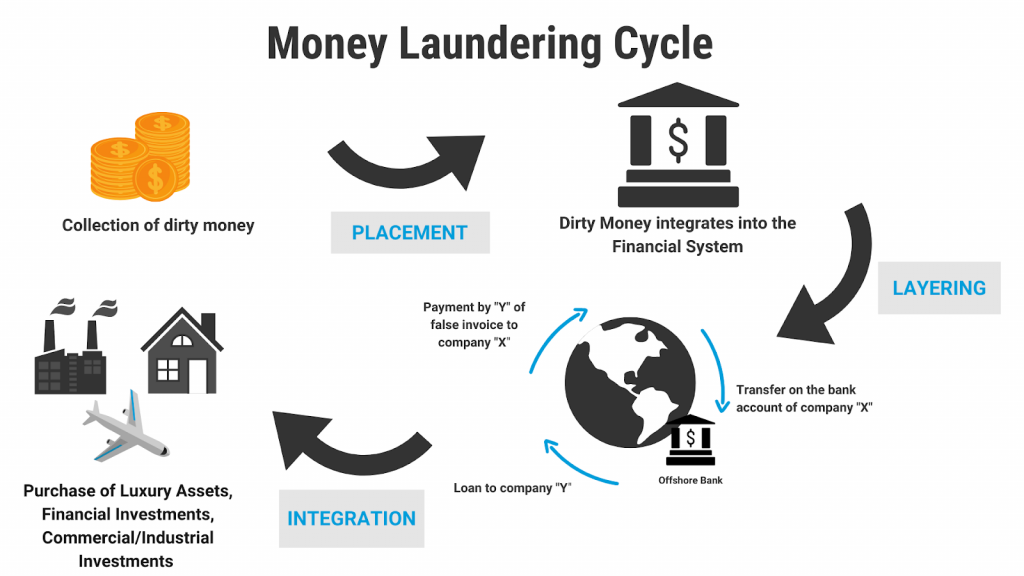Syllabus: GS3/ Economy
Context
- The Enforcement Directorate (ED) has listed the Communist Party of India (Marxist) or CPM as an accused in the Karuvannur Cooperative Bank money laundering case.
About
- The CPM is a political party registered under Section 29A of The Representation of the People Act, 1951.
- Under this section, only an association or body of individuals can apply to register as a political party.
- The ED has made CPM an accused in the money laundering case under section 70 of the Prevention of Money Laundering Act, which deals with offences by companies.
- According to the section, a ‘company’ means any corporate body and includes a firm or other association of individuals.
- The ED argued that as the CPM is identified as an association of individuals under the Representation of the People Act, it falls within the definition of ‘company’ under the PMLA.
What is Money Laundering?
- Money laundering is the illegal process of making large amounts of money generated by criminal activity, such as drug trafficking or terrorist funding, appear to have come from a legitimate source.
- In terrorism financing the funds were used to procure arms and ammunition and for training the cadres of the violent extremist organization, among other purposes.
- The money from the criminal activity is considered dirty, and the process “launders” it to make it look clean.

Impact of Money Laundering
- Reduces Tax Revenue: As illicit funds are hidden from authorities, governments suffer significant losses in tax collection, weakening their ability to fund public services.
- Creates Asset Bubbles: Laundered money is often invested in real estate, gold, or luxury goods, leading to artificial inflation and economic disparities.
- Hampers Investment: Uncertainty and lack of transparency caused by money laundering deter foreign and domestic investment.
- Supports Criminal Networks: Money laundering sustains organized crime, including drug trafficking, terrorism, and human trafficking.
- International Repercussions: Countries perceived to have weak anti-money laundering measures face sanctions or restrictions from global bodies such as the Financial Action Task Force (FATF), affecting international relations and trade.
Measures taken by India
- Key Initiatives:
- Jan Dhan-Aadhaar-Mobile (JAM): Enhancing financial transparency.
- GST E-Invoices and E-Bills: Promotes transparency in the supply chain.
- Indian Cyber Crime Coordination Centre: Strengthens cybercrime enforcement.
- Central KYC Records Registry (CKYCR): Repository for KYC data and customer records.
- Task Forces and Committees: Formed to address corruption, black money, drug trafficking, and fake currency.
- Investigative Agencies: The National Investigation Agency (NIA) and Enforcement Directorate (ED) effectively conducted probes.
- Financial Intelligence Unit-India (FIU-IND): The FIU-IND is the central national agency responsible for receiving, processing, analyzing, and disseminating information relating to suspicious financial transactions.
- It serves as the nodal agency for coordinating action against money laundering and related offenses.
| Prevention of Money Laundering Act (PMLA) 2002 – It was enacted by Parliament of India under Article 253 of Constitution in 2002 to prevent money laundering and provide for the confiscation of property derived from or involved in money laundering. – PMLA and the Rules notified there under came into force with effect from 2005, and it was further amended in 2009 and in 2012. – Provisions: 1. Sec. 3 of PMLA defines the offense of money laundering as any process or activity connected with the proceeds of crime and projecting it as untainted property. 2. Prescribe obligation: PMLA prescribes the obligation of banking companies, financial institutions and intermediaries for verification and maintenance of records of the identity of all its clients. 3. Empowerment of officers: PMLA empowers Directorate of Enforcement to carry out investigations in cases involving offense of money laundering and also to attach the property involved in money laundering. |
Way Ahead
- Introduce clear legal provisions to regulate the financial conduct of political parties without compromising their democratic functions.
- Create an autonomous body or strengthen the Election Commission’s mandate to audit and monitor political party finances and enforce compliance.
- Ensure investigative bodies like the ED to act transparently, independently, and impartially, maintaining public trust and avoiding perception of bias.
Source: IE
Previous article
Government mulls 15-year Stay Requirement for Ladakh Domicile Tag
Next article
Quantum Technology Research Centre